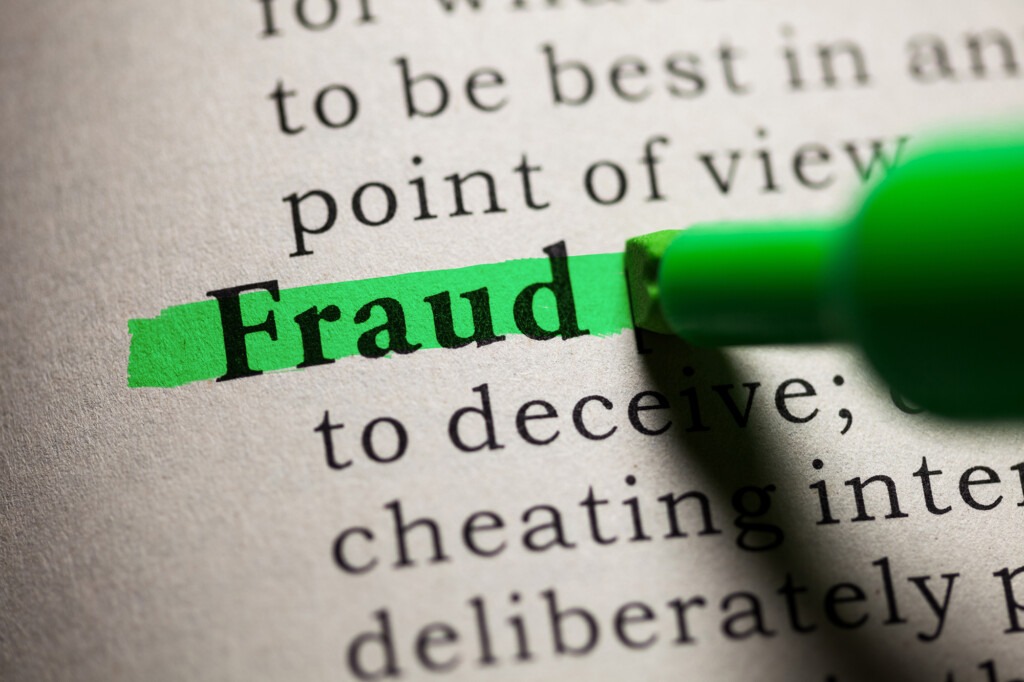Changes In A Scam Victim’s Life
By Tim McGuinness, Ph.D. – Anthropologist, Scientist, Director of the Society of Citizens Against Relationship Scams Inc.
After A Scam Or Crime Is Over, Its Victims Are Left To Figure Out How To Go Forward And What Changes Need To Be Made In Their Life!
Scam victim changes come at every stage of the post-crime recovery. They vary from stage to stage as the person goes from being a victim to a survivor to a thrive! At each stage, different changes are needed both for safety and to allow emotional and psychological recovery.
These changes fall generally into 4 main categories:
- Procedural Changes
- Behavioral Changes
- Psychological Changes
- Sociological (Social) Changes
The Survival Changes: Procedural & Behavioral
As it relates to scam or crime victims, procedural changes and behavioral changes refer to two distinct aspects of their lives that may be affected following the traumatic event.
Procedural Changes
Procedural changes involve modifications or adjustments to the practical aspects of a crime victim’s life. These changes often relate to legal procedures, safety measures, and systems put in place to address the aftermath of the crime.
Here are some examples:
- Safety Measures: Victims of crime may implement procedural changes to enhance their personal safety and security. This can involve installing security systems in their homes, changing locks, seeking restraining orders or protection orders, or taking self-defense classes. They may also become more cautious about personal safety in various aspects of their lives, such as travel or social activities.
- Legal Procedures: Crime victims may experience procedural changes in their interactions with the criminal justice system. This can include reporting the crime, providing statements to law enforcement, participating in investigations, and possibly testifying in court. They may need to navigate through legal processes, such as attending hearings, meetings with lawyers, or seeking restitution.
- Accessing Support Services: Procedural changes may include seeking and accessing support services available to crime victims. This can involve contacting victim assistance programs, counseling services, or support groups to receive emotional support, guidance, or practical assistance. It may also involve applying for financial compensation or accessing resources for trauma recovery.
Behavioral Changes
Behavioral changes refer to alterations in a crime victim’s patterns of thoughts, emotions, and actions following the traumatic event. These changes are often related to psychological and emotional responses to the crime.
Here are some examples:
- Emotional Responses: Victims of crime may experience behavioral changes in their emotional responses. This can manifest as increased anxiety, fear, sadness, anger, or irritability. They may also develop symptoms of post-traumatic stress disorder (PTSD), such as nightmares, flashbacks, or hypervigilance.
- Coping Mechanisms: Crime victims may adopt new coping strategies (good or bad) or modify existing ones to manage the emotional impact of the crime. This can include engaging in therapy or counseling, practicing relaxation techniques, journaling, or seeking support from other victims or friends and family. Behavioral changes may involve avoiding triggers or situations that evoke distressing memories or emotions.
- Lifestyle Modifications: Scam or fraud victims may make behavioral changes in their lifestyle to regain a sense of control or to promote their overall well-being. This can include changes in routines, social activities, or relationships. They may prioritize self-care activities, engage in new hobbies, or seek out positive experiences to aid their healing and recovery.
- Trust and Relationships: Scam victims may experience changes in their ability to trust others or form new relationships. They may become more cautious or guarded in their interactions, and it may take time for them to rebuild trust. These behavioral changes can affect their relationships with family, friends, and especially new acquaintances.
It’s important to note that procedural and behavioral changes can often intersect and influence each other. The impact of the crime on a victim’s life can lead to modifications in both practical and emotional aspects as they navigate through the aftermath of the traumatic event and work towards healing and recovery.
Post-Crime Stabilizing Or Destabilizing Changes: Psychological & Social
Psychological and social changes in a crime victim’s life refer to distinct aspects of their experiences and adaptations following the traumatic event.
You may note that some of these overlap with Behavioral changes. As always, the devil is in the details that lead us to look at them as being one of the other.
Psychological Changes
Psychological changes pertain to alterations in a crime victim’s internal processes, thoughts, emotions, and overall mental well-being. These changes are often related to the psychological impact of the crime.
Here are some examples:
- Emotional Responses: Crime victims may undergo psychological changes in their emotional responses. This can involve heightened levels of anxiety, fear, anger, sadness, or a range of other emotions. They may also experience symptoms of trauma-related disorders such as post-traumatic stress disorder (PTSD), depression, or anxiety disorders.
- Cognitive Processing: Psychological changes may encompass alterations in a victim’s cognitive processing (cognitive dissonance.) This can involve intrusive thoughts, flashbacks, or difficulty concentrating or making decisions. Victims may experience negative beliefs about themselves or the world, or develop a sense of hypervigilance about potential threats.
- Self-Identity: Crime can deeply impact a victim’s self-identity. They may experience a shift in how they perceive themselves, their self-esteem, or their sense of control over their lives. Psychological changes may involve questioning their beliefs, values, or personal assumptions in the aftermath of the crime.
- Coping Mechanisms: Crime victims may adapt their psychological coping mechanisms to manage the emotional and psychological impact of the event. This can include seeking therapy or counseling, engaging in self-care activities, practicing relaxation techniques, or seeking support from loved ones. Psychological changes often revolve around finding ways to navigate and process the trauma.
Social Changes
Social changes refer to modifications in a crime victim’s social interactions, relationships, and broader social functioning. These changes stem from the consequences of the crime on their social life and relationships. Here are some examples:
- Social Support Network: Social changes may involve adjustments in a victim’s social support network. They may seek support from family, friends, or support groups, or they may find that existing relationships shift in response to the trauma. Victims may also form new connections with individuals who have experienced similar traumas. Or they may walk away from support groups or family and friends because they cannot face them, often seeing reasons for taking these actions that are not really there.
- Trust and Relationships: Scams can significantly impact a victim’s ability to trust others and form new relationships. They may experience difficulties in trusting others due to the betrayal or violation they endured. Social changes can involve a reassessment of existing relationships, the establishment of boundaries, and a cautious approach to forming new connections, especially with strangers. This is not bad, unless it leads to the disillusionment of existing relationships for the wrong reasons.
- Isolation and Withdrawal: Some crime victims may experience social changes that involve isolation or withdrawal from social activities and interactions. They may retreat from social engagements, avoid certain places or situations that remind them of the crime, or experience difficulties engaging in social activities due to heightened anxiety or fear.
- Advocacy and Activism: Social changes can also encompass a victim’s engagement in advocacy or activism (or revenge and vigilantism) related to the crime they experienced. Some victims may develop savior syndrome and believe that they are the only ones that can help other victims, or more positively participate in organizations such as SCARS that professionally support crime victims.
It’s important to recognize that psychological and social changes in a crime victim’s life often interact and influence one another. The psychological impact of the crime can affect their social interactions and relationships, and changes in their social environment can have implications for their psychological well-being.
Summary
Supporting scam victims may involve addressing all of the procedural, behavioral, psychological, and social dimensions of their experiences to promote healing, resilience, and a sense of social connectedness.
Resources:
- SCARS Support & Recovery Groups support.AgainstScams.org
- Trauma Counseling and Therapy resources counseling.AgainstScams.org
More:
- Impact of Crime Victimization (romancescamsnow.com)
- Victims: Common Reactions To Crime (romancescamsnow.com)
- Scam Victim Identity Crisis (romancescamsnow.com)
- Scam Victim Isolation (romancescamsnow.com)
- Signs of Good & Bad Scam Victim Emotional Health (romancescamsnow.com)
- What Is The Difference Between A Scam Victim And A Scam Survivor? [Updated] (romancescamsnow.com)
- Curiosity & Scam Victim Recovery: A Powerful Tool for Processing Emotions After A Scam (romancescamsnow.com)
- Scam Victims And The 9 Circles Of Hell After The Scam Ends (romancescamsnow.com)
- Brain Fog Caused By Scam-Related PTSD (romancescamsnow.com)
- Urgent Next Steps For A Scam Victim After The Discovery Of The Scam (romancescamsnow.com)
- Victim Expectations And Recovery Failure (romancescamsnow.com)
More ScamsNOW.com Articles
-/ 30 /-
What do you think about this?
Please share your thoughts in a comment below!
SCARS LINKS: AgainstScams.org RomanceScamsNOW.com ContraEstafas.org ScammerPhotos.com Anyscam.com ScamsNOW.com
reporting.AgainstScams.org support.AgainstScams.org membership.AgainstScams.org donate.AgainstScams.org shop.AgainstScams.org
youtube.AgainstScams.org linkedin.AgainstScams.org facebook.AgainstScams.org
6 Comments
Leave A Comment
TABLE OF CONTENTS
CATEGORIES
![NavyLogo@4x-81[1] Changes In A Scam Victim's Life](https://scamsnow.com/wp-content/uploads/2025/04/NavyLogo@4x-811.png)
ARTICLE META
Important Information for New Scam Victims
- Please visit www.ScamVictimsSupport.org – a SCARS Website for New Scam Victims & Sextortion Victims.
- SCARS Institute now offers its free, safe, and private Scam Survivor’s Support Community at www.SCARScommunity.org – this is not on a social media platform, it is our own safe & secure platform created by the SCARS Institute especially for scam victims & survivors.
- SCARS Institute now offers a free recovery learning program at www.SCARSeducation.org.
- Please visit www.ScamPsychology.org – to more fully understand the psychological concepts involved in scams and scam victim recovery.
If you are looking for local trauma counselors, please visit counseling.AgainstScams.org
If you need to speak with someone now, you can dial 988 or find phone numbers for crisis hotlines all around the world here: www.opencounseling.com/suicide-hotlines
Statement About Victim Blaming
Some of our articles discuss various aspects of victims. This is both about better understanding victims (the science of victimology) and their behaviors and psychology. This helps us to educate victims/survivors about why these crimes happened and not to blame themselves, better develop recovery programs, and help victims avoid scams in the future. At times, this may sound like blaming the victim, but it does not blame scam victims; we are simply explaining the hows and whys of the experience victims have.
These articles, about the Psychology of Scams or Victim Psychology – meaning that all humans have psychological or cognitive characteristics in common that can either be exploited or work against us – help us all to understand the unique challenges victims face before, during, and after scams, fraud, or cybercrimes. These sometimes talk about some of the vulnerabilities the scammers exploit. Victims rarely have control of them or are even aware of them, until something like a scam happens, and then they can learn how their mind works and how to overcome these mechanisms.
Articles like these help victims and others understand these processes and how to help prevent them from being exploited again or to help them recover more easily by understanding their post-scam behaviors. Learn more about the Psychology of Scams at www.ScamPsychology.org
SCARS INSTITUTE RESOURCES:
If You Have Been Victimized By A Scam Or Cybercrime
♦ If you are a victim of scams, go to www.ScamVictimsSupport.org for real knowledge and help
♦ SCARS Institute now offers its free, safe, and private Scam Survivor’s Support Community at www.SCARScommunity.org/register – this is not on a social media platform, it is our own safe & secure platform created by the SCARS Institute especially for scam victims & survivors.
♦ Enroll in SCARS Scam Survivor’s School now at www.SCARSeducation.org
♦ To report criminals, visit https://reporting.AgainstScams.org – we will NEVER give your data to money recovery companies like some do!
♦ Follow us and find our podcasts, webinars, and helpful videos on YouTube: https://www.youtube.com/@RomancescamsNowcom
♦ Learn about the Psychology of Scams at www.ScamPsychology.org
♦ Dig deeper into the reality of scams, fraud, and cybercrime at www.ScamsNOW.com and www.RomanceScamsNOW.com
♦ Scam Survivor’s Stories: www.ScamSurvivorStories.org
♦ For Scam Victim Advocates visit www.ScamVictimsAdvocates.org
♦ See more scammer photos on www.ScammerPhotos.com
You can also find the SCARS Institute’s knowledge and information on Facebook, Instagram, X, LinkedIn, and TruthSocial
Psychology Disclaimer:
All articles about psychology and the human brain on this website are for information & education only
The information provided in this and other SCARS articles are intended for educational and self-help purposes only and should not be construed as a substitute for professional therapy or counseling.
Note about Mindfulness: Mindfulness practices have the potential to create psychological distress for some individuals. Please consult a mental health professional or experienced meditation instructor for guidance should you encounter difficulties.
While any self-help techniques outlined herein may be beneficial for scam victims seeking to recover from their experience and move towards recovery, it is important to consult with a qualified mental health professional before initiating any course of action. Each individual’s experience and needs are unique, and what works for one person may not be suitable for another.
Additionally, any approach may not be appropriate for individuals with certain pre-existing mental health conditions or trauma histories. It is advisable to seek guidance from a licensed therapist or counselor who can provide personalized support, guidance, and treatment tailored to your specific needs.
If you are experiencing significant distress or emotional difficulties related to a scam or other traumatic event, please consult your doctor or mental health provider for appropriate care and support.
Also read our SCARS Institute Statement about Professional Care for Scam Victims – click here
If you are in crisis, feeling desperate, or in despair, please call 988 or your local crisis hotline – international numbers here.
More ScamsNOW.com Articles
A Question of Trust
At the SCARS Institute, we invite you to do your own research on the topics we speak about and publish. Our team investigates the subject being discussed, especially when it comes to understanding the scam victims-survivors’ experience. You can do Google searches, but in many cases, you will have to wade through scientific papers and studies. However, remember that biases and perspectives matter and influence the outcome. Regardless, we encourage you to explore these topics as thoroughly as you can for your own awareness.
























![scars-institute[1] Changes In A Scam Victim's Life](https://scamsnow.com/wp-content/uploads/2025/04/scars-institute1.png)

![niprc1.png1_-150×1501-1[1] Changes In A Scam Victim's Life](https://scamsnow.com/wp-content/uploads/2025/04/niprc1.png1_-150x1501-11.webp)
I really detest the way my trust in others has been affected by the scamming I went through. I used to like giving others the benefit of the doubt, but I can no longer do so. I do not know if that will ever change, but my armor is too thick to penetrate for now.
I have certainly changed my outlook on those I don’t know and do not trust anyone outside my circle of friends and family. At first, I completely isolated myself. I didn’t get together with friends and withdrew from my family. I couldn’t talk about what happened and had very dark thoughts for about 3 months. I was so triggered by the bank where I sent the wire transfers that I did any banking in a branch from another town.
In the last few months I’ve been reconnecting with my friends, meeting them for dinner, and staying in touch. It’s been a long process to get back out there, but it’s helped to interact with people I love and trust.
Currently I am experiencing many of the changes as detailed in this article. My ability to trust has taken a direct hit. I trust only those who live with me. At first I was very fearful of my safety and thought many times I was being followed on my commute to and from work. In the very beginning I was afraid to turn on the lights in my house because I was certain I was being watched. All of that has toned down now and I feel only minor twinges of alarm. I really have a mental war with myself about who to trust with my story. So as a result I’m not seeing many people right now. This crime has really taken a toll on me. On the outside I appear unaffected. The inside is another story altogether. I have turned down many invitations but there are a few I have participated in. I am quite emotional. I don’t have any desire to go after the criminal as I have absolutely no idea who to look for. The impersonator allowed no personal photographs. I know the true “celebrity” the criminal impersonated is not at fault for what happened.
I have gone from being a victim to a survivor and I am now working to be a thriver!
I definitely have had changes in how I approach everyday life. I have become a lot more emotional but try to remind myself that I have been traumatized and this is a normal response. I am determined to be a survivor and make the most of the rest of my life.
I read this article several times as it really resonated with me – well-structured and summarized! Made me reflect on the behavioral & social changes I made after the crime to help heal and cope.